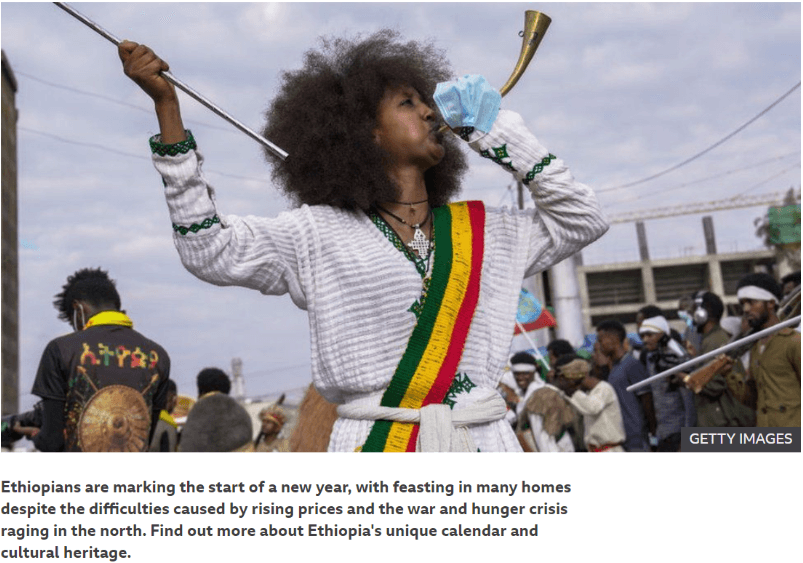September 11, 2021
1:04 pm
Ethiopia: The country where a year lasts 13 months

Source: BBC
By Lucy Fleming
1) The year lasts 13 months
Not only that – the Ethiopian calendar is also seven years and eight months behind the Western calendar, making Saturday the start of 2014.
This is because it calculates the birth year of Jesus Christ differently. When the Catholic Church amended its calculation in 500 AD, the Ethiopian Orthodox Church did not.
So the new year falls on 11 September in the Western calendar, or 12 September in leap years, at the start of spring.

Unlike children growing up elsewhere, there is little need for Ethiopian youngsters to learn rhymes to remember how many days each month has.
In Ethiopia it is simple: 12 months each have 30 days and the 13th – the last of the year – has five or six days, depending on whether it’s a leap year.
Time is also counted differently – with the day divided into two 12-hour slots starting from 06:00, which would make both midday and midnight six o’clock in Ethiopian time.
So if someone arranges to meet you in Addis Ababa at 10 o’clock for a cup of coffee – Ethiopia is after all the birthplace of the arabica bean – don’t be surprised if they rock up at 16:00.
2) Only African country never colonised
Italy tried to invade Ethiopia, or Abyssinia as it was also known, in 1895, when European powers were carving up the African continent between themselves – but it went on to suffer a humiliating defeat.
Italy had managed to colonise neighbouring Eritrea after an Italian shipping company bought the Red Sea port of Assab. Confusion following the death in 1889 of Ethiopian emperor Yohannes IV then allowed Italy to occupy the highlands along the coast.

